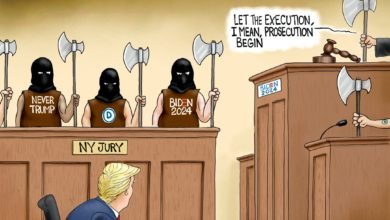How Much Public Debt Is Too Much?
The federal government has been on a two-year spending spree. Last year, it spent $3 trillion more than it collected in revenue. This year it will spend another $3 trillion more than its revenue. This adds to the public debt, which will hit $30 trillion by year-end. Is that a problem?
The Senate just passed an infrastructure bill that will spend another $1 trillion, which will be added to the public debt. Another “budget reconciliation” bill for at least $3.5 trillion just passed the Senate, and the House will surely approve it. That will add at least $3.5 trillion more to the public debt.
The $3.5 trillion number will probably end up being closer to $5.5 trillion because some of the programs in the bill will only last a few years. The reality is that once an entitlement program is implemented it is nearly impossible to reverse, meaning those supposedly short-term programs will end up being long-term programs. That cost of the bill is really $5.5 trillion, not $3.5 trillion.
This large amount of debt is a serious problem for the country. Even though interest rates are near zero, the interest expense on the debt will be about $400 billion this year. That’s about 10% of government non-COVID-related spending. This figure will climb rapidly.
That’s not only because we are adding so much debt, but as the debt is rolled over, the new debt will carry a higher interest rate than the debt it replaces. That’s because interest rates will rise in the future and because there is no plan in place to ever repay this debt.
When a deficit is incurred the government sells bonds to finance the deficit. These are mostly 10-year or 20-year bonds. The interest expense must be paid annually but when the bond matures and must be repaid, the government doesn’t have the funds.
New bonds are sold to pay off the older bonds, meaning the public debt will not be reduced just rolled over. Considering this, it is likely that the interest expense on the public debt will approach $1 trillion annually before the end of this decade.
That’s $1 trillion annually that can’t be spent on government programs that really benefit the citizens.
The other, perhaps more serious problem with a large public debt, is that with the federal government taking trillions from capital markets, there could be a capital shortage. This is very likely especially since Biden wants to raise the corporate income tax rate, raise the capital gains tax rate, and raise the income tax rate on the highest income earners.
Those actions will reduce capital formation which would make the capital shortage problem even worse. If the business community does not have access to adequate amounts of capital, they can’t expand, which will stagnate the economy. And if business can’t increase output to meet the huge increase in demand from the large government expenditures, the only way to react is to raise prices.
That means the U.S. ends up with a 1970s style stagflation, which is a stagnate economy experiencing high inflation.
The large role of government is very basic to the philosophy of the Democratic Party. The shock is that the GOP usually follows a more conservative fiscal approach. In the Senate, 19 GOP senators voted in favor of the $1 trillion infrastructure bill, which allowed the bill to pass.
Using reconciliation, the Senate approved the $3.5 trillion budget plan without any GOP votes. The 19 Senators who voted for the infrastructure bill allowed this huge increase in spending to happen. All 19 should have voted no. That would have meant the infrastructure bill would not have passed and the $3.5 budget reconciliation would probably not have happened.
Most economists would say that if the public debt is less than one year’s GDP, that is probably acceptable. Above that the debt is problematic. Since this year’s GDP is about $22 trillion, we are well into the problematic range.
The public debt is already too large. A responsible government would look for ways to reduce the annual deficit to minimize the public debt. In other words, if someone is stuck in a deep hole, the first thing to do is to stop digging.




